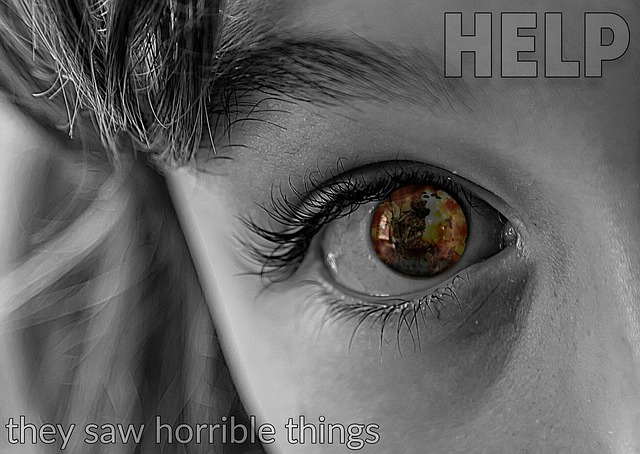Edith Eger In her book, The Gift: 12 Lessons to Save Your Life, discusses the “the imprisonment of avoidance” – the refusal to express challenging emotions. She maintains that avoiding feelings through suppression leads to depression – the opposite involves release through expression. We can supress our feelings for many reasons, e.g. to avoid the pain and hurt of recollection or to protect others from seeing us as vulnerable and suffering.
If we are suffering from past hurts or trauma we can try to shield loved ones from the discomfort that comes with the expression of strong feelings. In the process, we are not being honest and we are also depriving them of the opportunity to express empathy and love. We can also unconsciously train our children to avoid the expression of feelings when they are hurt or upset. We can try to diminish their feelings out of our own discomfort or sense of sadness. We might say, “Don’t cry, there will be other opportunities to go to parties”, “You’ll forget about this tomorrow”, “Look how many friends you do have who let you play”, or “Let’s get some ice cream and make the pain go away!” (we can try to substitute something pleasurable to avoid the expression of pain and hurt, thus setting in place habituated avoidance behaviour).
Edith suggests that sometimes we suppress our feelings by trying to convince ourselves that we are happy and joyful when this is patently not true. We might even resort to affirmations to hide our true feelings. This form of subterfuge only acerbates our feelings because it denies our reality – the depth and breadth of our true feelings. Edith encourages us “to feel so you can heal” because “you can’t heal what you don’t feel”. Sometimes our underlying feelings can be mired in resentment and can be unearthed through a guided reflection.
There is a real cost to ourselves in avoidance. Despite our very best efforts, emotions are embodied – they manifest in our bodies as physical tension/pain and/or result in emotional or physical illness. By not living our truth or accepting the reality of how we are feeling, we undermine our own integrity and personal integration. Edith provides a detailed and graphic example of the impact of unexpressed feelings on a women who experienced incomprehensible violence by a family member. Her life was lived in fear and loneliness because she never owned up to her feelings of rage, anger and deep fear of the perpetrator.
There may be times in conversation with a friend that we withhold a true expression of our feelings about some matter relevant to our relationship with them. Edith suggests that we can revisit the conversation mentally, work out what we should have said and then approach the relevant person at a suitable time and in a neutral place to express our real feelings. We could even start by practising with restaurant waitresses and expressing our honest feelings about a meal (rather than hiding our true feelings because we do not want to hurt or embarrass them).
Facing up to our feelings and naming them provides a real release. Edith suggests that we can practise this by stopping ourselves at any time during the day and naming our emotion, whether positive or challenging, in the present moment. This is not only a form of mindfulness practice but is also a way to increase self-awareness and develop honesty about our feelings both to ourselves and others.
Edith explains that sometimes this challenge to express rather than supress feelings appears overwhelming. She writes about her inability to face the Auschwitz Museum for fear of the pain of recollection of her parent’s murder and her own torture and starvation as a prisoner in the concentration camp. It took her a lot of courage after 10 years to visit the Museum and she describes in detail what she felt when confronted with images of emaciated people, the cattle trains and arrival platform. She found herself cringing and curled herself up into a tight ball in a dark corner of the Museum – overwhelmed by grief, pain, anguish and anger. However, revisiting the trauma and owning the depth of her feelings provided a new level of release to enable her to be even more productive and helpful in her ongoing work as a trauma consultant – she had finally gained release from the imprisonment of avoidance.
Reflection
Edith’s own life experience, which she shares so freely in her books, bears out how difficult it is to free ourselves from the imprisonment of avoidance. It may take many years of progressive inner work, and trying out various ways of overcoming our entrapment, to achieve some degree of freedom and realise ease and joy. However, suppression leads to ongoing suffering and depression.
As we grow in mindfulness, we become increasingly self-aware of the different ways we avoid expressing our true emotions, develop the courage to own up to these emotions and achieve the resilience required to break free of the imprisonment of avoidance. _________________________________
Image source: Pixabay
By Ron Passfield – Copyright (Creative Commons license, Attribution–Non Commercial–No Derivatives)
Disclosure: If you purchase a product through this site, I may earn a commission which will help to pay for the site, the associated Meetup group, and the resources to support the blog.

The benefits of mindfulness are great, and even just eight weeks of meditating can show improvement. However, you should be cautious about trying to treat anxiety yourself. If you have chronic anxiety, you shouldn’t suffer in silence—speak to your doctor and develop a plan to reduce your stress together. If you’re just looking for ways to conquer everyday stressors and find prolonged peace, trying the mindful activities shown in this book – net-boss org/shop/mindfulness-by-julia-hanner